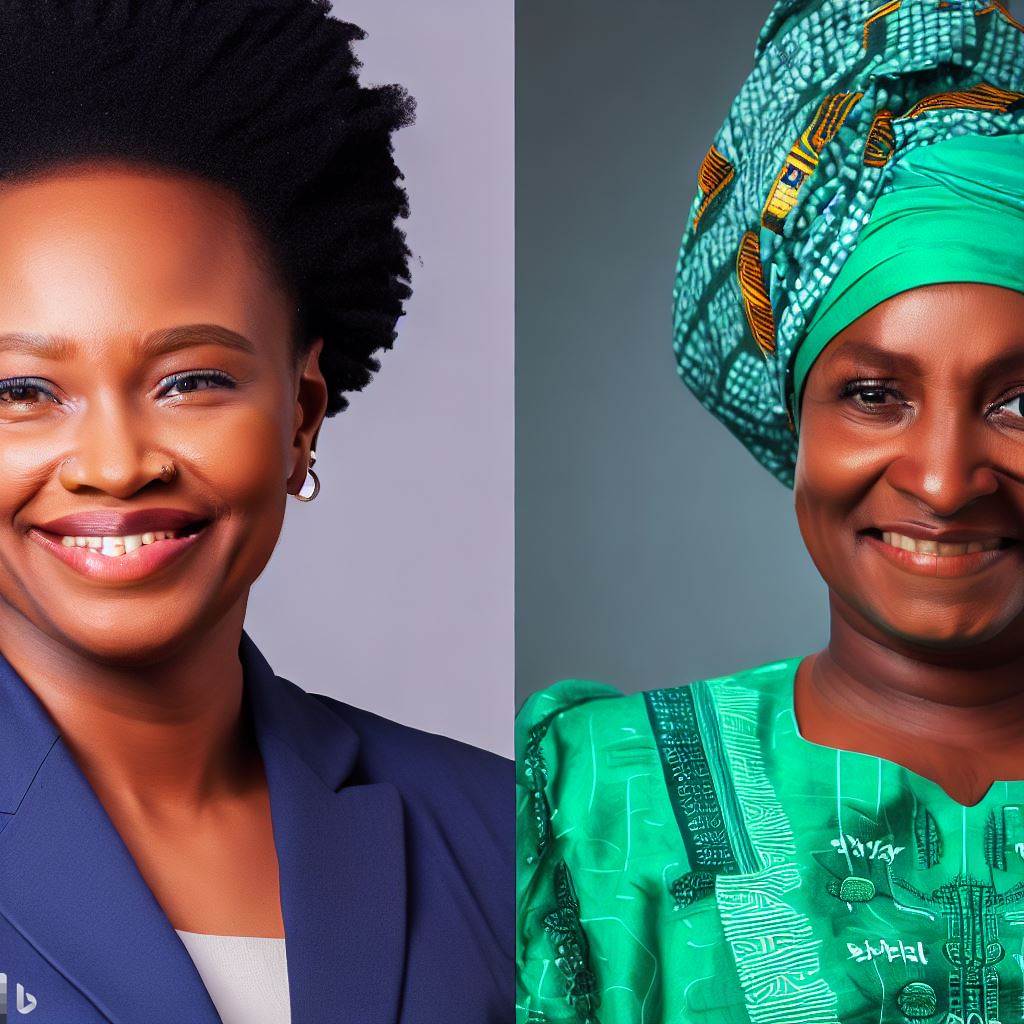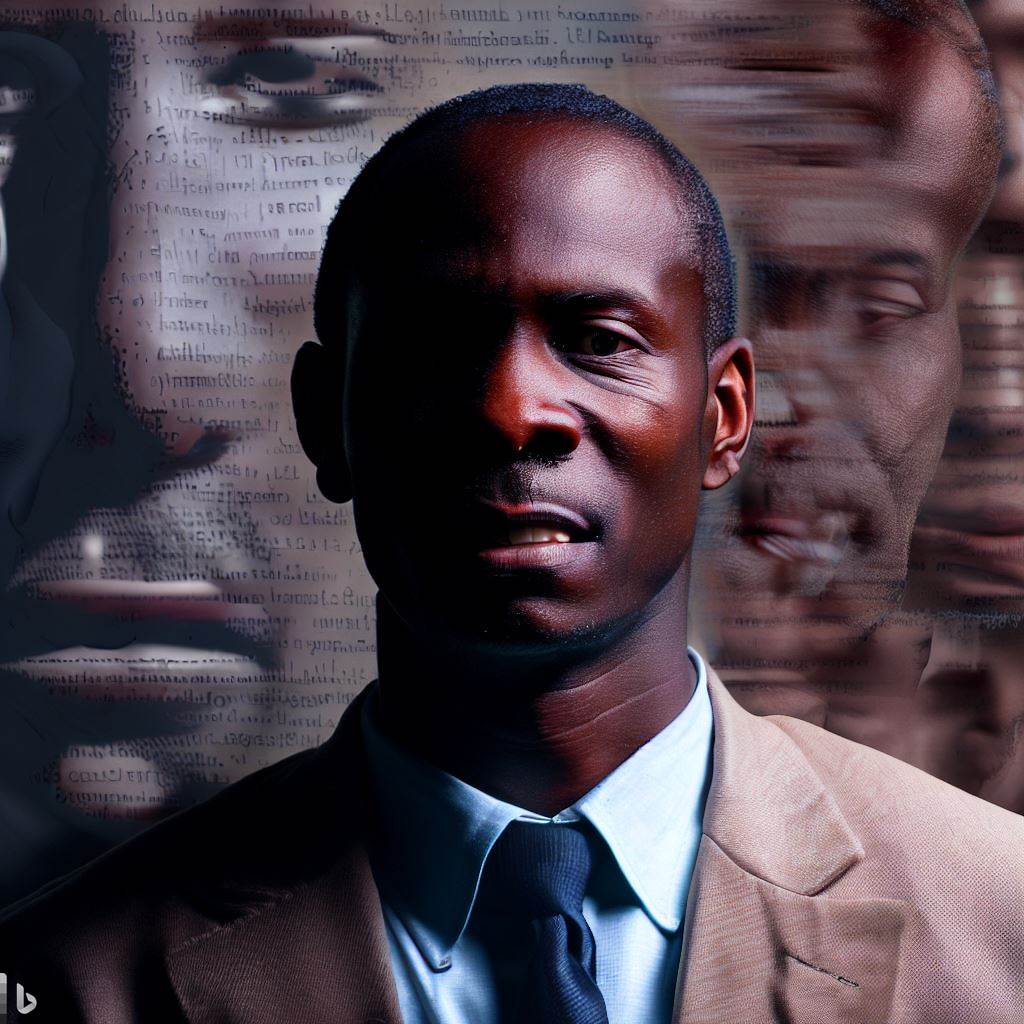Introduction and Background Information
Briefly define political scientists and NGOs
Let’s talk about political scientists and NGOs partnerships.
Political scientists are researchers and scholars who study political systems, governments, and political behavior.
Non-Governmental Organizations (NGOs) are non-profit organizations that operate independently of any government and work towards social, humanitarian, or environmental goals.
Provide context for Nigeria’s political landscape
Nigeria is a diverse and populous country located in West Africa.
It gained independence from British colonial rule in 1960 and has since experienced political instability, corruption, and ethnic tensions.
Nigeria has a federal system of government with an executive president and a multi-party system.
The country has faced challenges such as ethno-religious conflicts, economic inequality, and resource management issues.
Thesis statement: Exploring the partnerships between political scientists and NGOs in Nigeria
In Nigeria, political scientists and NGOs have formed partnerships to address governance issues, advocate for political reforms, promote human rights, and ensure transparency and accountability in the political process.
These collaborations aim to contribute to the development and democratization of Nigeria’s political system.
Overall, the partnerships between political scientists and NGOs in Nigeria play a vital role in advancing political research, civic engagement, and policy advocacy, ultimately contributing to positive change and democratic progress in the country.
Role of Political Scientists in Nigeria
Definition and functions of political scientists
- Political scientists are professionals who study political systems, behavior, and institutions.
- They analyze political phenomena, conduct research, and provide expertise in political processes.
- Their functions include advising policymakers, developing theories, and conducting surveys.
- They also study public opinion, elections, and the relationship between citizens and the government.
Explanation of their research and analysis contributions
- Political scientists conduct in-depth research to understand political systems and dynamics.
- They analyze data, gather evidence, and develop theories based on rigorous methodologies.
- Their research contributes to a deeper understanding of political phenomena and its implications.
- Through their analysis, political scientists identify trends, patterns, and potential solutions to political problems.
- They provide valuable insights that help policymakers make informed decisions.
Overview of political scientists’ impact on policymaking in Nigeria
- Political scientists play a crucial role in shaping policymaking in Nigeria.
- They provide policymakers with evidence-based analysis and advice.
- Through their research, they identify policy gaps, evaluate existing policies, and propose improvements.
- Political scientists also contribute to the development of political strategies and the design of effective policies.
- They help policymakers understand the consequences of their decisions on society.
- By studying political systems and institutions, political scientists promote transparency, accountability, and good governance.
- They are key actors in promoting democratic practices, political stability, and sustainable development.
In general, political scientists in Nigeria play a vital role in the country’s policymaking process.
They provide expertise, research, and analysis that help policymakers make informed decisions.
Through their contributions, they contribute to the development of effective policies, democratic practices, and good governance.
It is essential to recognize and support the work of political scientists to ensure the country’s progress and development.
Read: Skills Needed for HR Specialists in Nigeria
Significance of NGOs in Nigeria
Introduction to NGOs and their goals
Non-governmental organizations (NGOs) are nonprofit organizations that operate independently of the government.
Their main goals include promoting social, economic, and political development, as well as creating positive change in society.
Discussion on the role and impact of NGOs in Nigeria’s governance
NGOs play a crucial role in Nigeria by supplementing the efforts of the government in improving the lives of its citizens.
They act as watchdogs, advocating for good governance, transparency, and accountability.
NGOs have successfully influenced policy decisions, ensuring that the government remains accountable to the people.
They provide a platform for citizens to voice their concerns, participate in decision-making processes, and hold elected officials accountable.
NGOs also enhance service delivery in Nigeria, particularly in areas where the government is lacking resources or expertise.
They often work in education, healthcare, environmental protection, human rights, and other sectors to bridge the gap and provide essential services to marginalized communities.
To summarize, NGOs in Nigeria play a vital role in capacity building and empowering communities.
They provide training and skills development programs, empowering individuals and communities to become self-reliant and active participants in their own development.
Examples of prominent NGOs actively involved in Nigerian politics
- Open Society Initiative for West Africa (OSIWA): OSIWA focuses on promoting democratic governance, accountability, and transparency in Nigeria. They provide grants to organizations working on human rights, justice, and rule of law.
- CLEEN Foundation: This NGO aims to promote public safety, security, and justice.
They conduct research, advocacy, and civic education, advocating for reforms in Nigeria’s security and justice sectors. - Transition Monitoring Group (TMG): TMG is a coalition of over 400 civil society organizations working towards credible elections, electoral reforms, and democratic governance in Nigeria.
- Women’s Rights Advancement and Protection Alternative (WRAPA): WRAPA focuses on promoting women’s rights, gender equality, and women’s political participation in Nigeria.
They provide legal support, advocacy, and education programs. - Nigerian Red Cross Society (NRCS): NRCS is actively involved in providing humanitarian services, including disaster response and management, healthcare support, and community resilience building.
These are just a few examples of prominent NGOs actively engaged in Nigerian politics.
Their work significantly contributes to promoting good governance, social justice, and sustainable development in the country.
Read: Nigeria’s Top Hotels: Opportunities for Waiters
The Collaborative Partnerships Between Political Scientists and NGOs
Overview of the collaborative nature of these partnerships
In Nigeria, political scientists and non-governmental organizations (NGOs) have formed collaborative partnerships to address pressing social and political issues.
These partnerships are based on mutual understanding and cooperation.
Political scientists contribute their expertise in understanding political structures, policies, and trends, while NGOs bring grassroots-level knowledge and experience in implementing projects and advocating for change.
By working together, political scientists and NGOs enhance each other’s capabilities, bridging the gap between theory and practice.
Highlight the benefits derived for both parties
The collaborative partnerships between political scientists and NGOs in Nigeria yield numerous benefits for both parties:
- Enhanced Research: Political scientists gain access to real-world data and insights from NGOs’ experiences, enriching their research and analysis.
- Practical Application: NGOs benefit from political scientists’ theoretical perspectives, helping them devise more effective strategies and interventions.
- Increased Impact: Through collaboration, political scientists’ recommendations are more likely to be implemented by NGOs, leading to tangible social and political changes.
- Policy Influence: Political scientists can leverage NGOs’ networks and grassroots connections to influence policymaking and bring about public policy reforms.
- Knowledge Dissemination: NGOs can help political scientists disseminate their research findings to a wider audience, including policymakers and the public.
Case studies or examples showcasing successful collaborations
Several case studies exemplify the successful collaborative partnerships between political scientists and NGOs:
Voter Education Campaign
An NGO focused on promoting democratic participation partnered with political scientists to design and implement an effective voter education campaign.
Political scientists provided insights into voter behavior, while the NGO executed the campaign on the ground, leading to increased voter awareness and turnout.
Anti-Corruption Advocacy
A political scientist specialized in corruption studies collaborated with an anti-corruption NGO to develop evidence-based advocacy strategies.
The NGO utilized the political scientist’s research findings to shape their anti-corruption initiatives, resulting in improved public awareness and governmental accountability.
Peacebuilding Initiatives
A political scientist specializing in conflict resolution partnered with an NGO working in post-conflict areas.
The political scientist’s theoretical knowledge and the NGO’s field experience enabled the development of comprehensive peacebuilding programs, leading to sustainable peace and reconciliation.
These case studies highlight the synergy achieved through collaborations between political scientists and NGOs in Nigeria.
By combining academic expertise with practical implementation, these partnerships play a crucial role in addressing social and political challenges.
Read: Networking Tips for HR Professionals in Nigeria
Contributions of Political Scientists to NGOs
Political scientists play a crucial role in supporting NGOs in Nigeria through various contributions.
Their expertise and knowledge are valuable in enhancing the effectiveness and impact of NGOs in addressing societal issues.
This section will explore three significant contributions made by political scientists to NGOs in Nigeria.
Research and analysis support provided by political scientists
Political scientists are well-equipped with the skills to conduct research and analysis on a wide range of issues.
NGOs often seek their support to gather relevant data and evidence that can inform their programs and initiatives.
By providing rigorous research, political scientists help NGOs in understanding the root causes of problems and developing effective strategies to address them.
Furthermore, political scientists can analyze the socio-political context in which NGOs operate.
They provide insights into the prevailing power dynamics, cultural norms, and policy environment, helping NGOs navigate complex systems and adapt their intervention strategies accordingly.
Expertise and guidance offered regarding policy formulation and implementation
NGOs often face challenges in formulating and implementing policies that can bring about meaningful change.
Political scientists offer their expertise in this area by providing guidance and advice on policy development processes.
They assist NGOs in identifying key stakeholders, understanding their interests, and designing policies that can garner support and achieve desired outcomes.
Political scientists also help NGOs in assessing the feasibility and viability of policy proposals.
Through their understanding of governance structures and political institutions, they can identify potential roadblocks and offer alternative approaches that align with the political reality.
Role of political scientists in evaluating the effectiveness of NGOs’ initiatives
Evaluation is an essential aspect of NGO work to ensure accountability and continuous improvement.
Political scientists play a vital role in evaluating the effectiveness of NGOs’ initiatives.
They employ rigorous research methodologies to assess the impacts, outcomes, and sustainability of the interventions.
Political scientists can design and implement monitoring and evaluation frameworks that capture relevant data, measure progress, and provide evidence-based recommendations for improvement.
By conducting thorough evaluations, they enable NGOs to learn from their experiences, identify areas of success and challenges, and make informed decisions to enhance their effectiveness.
Overall, political scientists bring significant contributions to NGOs in Nigeria.
Their research and analysis support, expertise in policy formulation, and evaluation skills strengthen the work of NGOs, enabling them to create positive change in society.
Collaborations between political scientists and NGOs are essential in addressing complex societal challenges and fostering sustainable development.
Read: Becoming a Chef in Nigeria: Skills and Education

Contributions of NGOs to Political Scientists
NGOs play a crucial role in shaping and influencing the work of political scientists in Nigeria.
Through their collaborations, NGOs bring valuable contributions to the field, enhancing the understanding of political dynamics and fostering positive change in the society.
This section will explore the significant contributions that NGOs make to political scientists in Nigeria.
Access to ground-level data and grassroots perspectives
NGOs often operate at the grassroots level, working closely with local communities and individuals.
This unique positioning allows them to collect and provide political scientists with valuable ground-level data.
Political scientists heavily rely on accurate and qualitative data to analyze political trends and phenomena.
By partnering with NGOs, researchers gain access to on-the-ground information that may not be readily available through other sources.
This intimate knowledge of local communities enables political scientists to develop more comprehensive and insightful research.
Resources and funding provided to conduct research and projects
Undertaking research and organizing projects often require substantial resources and funding.
NGOs recognize this need and provide financial support to political scientists in Nigeria.
By collaborating with NGOs, researchers can secure the necessary resources to conduct in-depth studies, surveys, and interviews.
The funding offered by NGOs alleviates financial barriers that researchers might face, ensuring that their work can advance without constraints.
This contribution is instrumental in expanding the breadth and depth of political science research in Nigeria.
Networking and outreach opportunities facilitated by NGOs
NGOs play a vital role in connecting political scientists with relevant stakeholders, both domestically and internationally.
Through partnerships with NGOs, researchers gain access to diverse networks of policymakers, activists, and practitioners.
These networking opportunities allow political scientists to engage in meaningful dialogue, exchange ideas, and collaborate on solutions for societal challenges.
NGOs also provide platforms for researchers to share their findings through conferences, seminars, and publications, enhancing the visibility and impact of their work.
The connections and exposure facilitated by NGOs contribute to the professional growth and development of political scientists in Nigeria.
In essence, the contributions of NGOs to political scientists in Nigeria are varied and significant.
By granting access to ground-level data and grassroots perspectives, NGOs enable researchers to gain a comprehensive understanding of political dynamics.
Basically, the resources and funding provided by NGOs overcome financial barriers, ensuring that research projects can be pursued effectively.
Therefore, the networking and outreach opportunities facilitated by NGOs allow political scientists to connect with relevant stakeholders and share their work widely.
The collaboration between political scientists and NGOs in Nigeria is crucial in advancing knowledge, addressing societal challenges, and fostering positive change in the political landscape.
Challenges and Limitations
Delve into potential obstacles faced by political scientists and NGOs in their partnerships
- Lack of adequate funding and resources to sustain collaborative efforts.
- Differing goals and priorities between political scientists and NGOs.
- Communication barriers due to language and cultural differences.
- Resistance or lack of support from government officials or other influential stakeholders.
- Power imbalances and unequal distribution of decision-making authority.
- Difficulties in establishing trust and cooperation among diverse actors.
- Limited access to data and information necessary for effective research and advocacy.
- Complex and constantly evolving societal and political dynamics in Nigeria.
- Hostile or challenging working environments, including security threats and violence.
- Challenges in sustaining long-term partnerships due to turnover and changing personnel.
Address any ethical concerns or conflicts of interest that may arise
- Concerns over potential bias or manipulation of research findings to suit NGO’s agendas.
- Conflicts between the goals of political scientists and the advocacy-driven nature of NGOs.
- Balancing the need for neutrality and objectivity with the pressure to influence policy change.
- Ensuring informed consent and protecting the privacy and confidentiality of research participants.
- Avoiding dependency on NGOs for funding, which may compromise academic integrity.
- Avoiding participation in unethical practices such as bribery, corruption, or fraudulent activities.
- Managing conflicts of interest arising from personal relationships with NGO members or donors.
- Maintaining transparency in financial transactions and reporting within partnerships.
- Avoiding biases or compromising quality in research due to external pressures.
- Promoting accountability and responsible conduct among all stakeholders involved.
Discuss strategies to overcome these challenges and foster stronger collaborations
- Regular and open communication channels to address conflicts and build mutual understanding.
- Engaging in joint planning processes to align goals and establish common objectives.
- Seeking diverse perspectives through inclusive decision-making processes.
- Investing in capacity building and training programs for both political scientists and NGOs.
- Building strategic alliances with other stakeholders, including government agencies and international organizations.
- Engaging in grassroots and community-based initiatives to enhance trust and legitimacy.
- Advocating for increased funding and support for research and advocacy efforts.
- Developing guidelines and ethical codes of conduct to guide partnership interactions.
- Using technology and innovative methodologies to overcome logistical and informational barriers.
- Conducting regular evaluations and assessments of partnership effectiveness and sustainability.
Case Study: Notable Political Scientist-NGO Collaborations in Nigeria
Present a specific case study highlighting a successful partnership
One notable case study that highlights a successful partnership between a political scientist and an NGO in Nigeria is the collaboration between Dr. Adaobi Nwankwo, a renowned political scientist, and the Save Our Democracy Foundation (SODF).
Dr. Adaobi Nwankwo, an expert in Nigerian politics, teamed up with SODF, a non-governmental organization dedicated to promoting democratic values and civic engagement.
Their partnership aimed to address electoral malpractices and promote accountability in the Nigerian political system.
Discuss the achievements and outcomes resulting from this collaboration
The collaboration between Dr. Adaobi Nwankwo and SODF has yielded significant achievements and outcomes.
Firstly, they successfully organized a nationwide awareness campaign on electoral integrity, reaching millions of Nigerians and mobilizing them to actively participate in the democratic process.
Through voter education programs, they encouraged citizens to exercise their voting rights and choose competent leaders.
In short, they facilitated dialogue between political stakeholders, fostering mutual understanding and consensus-building.
This led to the implementation of electoral reforms, including stricter regulations on campaign financing and improved transparency in the electoral process.
Analyze the lessons learned and implications for future partnerships
The collaboration between Dr. Adaobi Nwankwo and SODF provides valuable lessons for future partnerships between political scientists and NGOs in Nigeria.
Firstly, a clear and shared vision is crucial for the success of such collaborations.
Delineating the objectives and desired outcomes at the outset helps ensure alignment and a unified approach.
Secondly, effective communication and coordination are essential. Regular communication channels and coordination mechanisms between the political scientist and the NGO facilitate sharing of information, resources, and expertise.
Thirdly, flexibility and adaptability are important to navigate the dynamic and ever-changing political landscape.
Political scientists and NGOs must be ready to adjust their strategies and activities as needed to address emerging challenges or opportunities.
Essentially, sustainable funding mechanisms are necessary to sustain long-term partnerships.
Political scientists and NGOs should explore diverse funding sources, including governmental grants, private donations, and international funding, to ensure continuity and stability.
Overall, the case study of the successful collaboration between Dr. Adaobi Nwankwo and SODF highlights the potential of partnerships between political scientists and NGOs in Nigeria.
By leveraging their respective expertise and resources, they were able to make tangible contributions to strengthening democracy and promoting good governance.
Generally, it is important to recognize that each collaboration is unique, and the lessons learned should be adapted to specific contexts and challenges.
With strategic planning, effective communication, and a commitment to shared goals, political scientists and NGOs can continue to forge impactful partnerships that contribute to positive change in Nigeria’s political landscape.
Discover More: Freelancing as an Optics Technician in Nigeria: A Guidebook
Conclusion
A partnership between political scientists and NGOs in Nigeria is crucial for effective policymaking and governance.
By collaborating, they can bring about positive effects, including informed decision-making and increased transparency.
Overall, the synergy between political scientists and NGOs has the potential for continued collaboration in the future.




